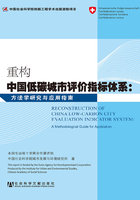
Foreword
As one of the first few western countries, Switzerland established diplomatic relations with China on September 14, 1950. Since then, trade and economic cooperation have steadily increased, and collaboration in various fields including education, tourism, training, sciences and technology have substantially strengthened. There have been frequent high-level visits between the two governments over last years. Upon China's reform and opening-up, Swiss companies took the lead entering China's market and established joint venture industrial enterprises. Switzerland was also the first continental European country to recognize China's full market economy status. All these were the result of the pioneering and innovative spirit that has been embedded in the Sino-Swiss bilateral relations.
While climate change has become the common challenge for human society and attracted widespread concern around the world, Switzerland and China signed a memorandum of cooperation on climate change. China has achieve d remarkable results for low-carbon development as it has been vigorously promoting the construction of ecological civilization and actively responding to climate change. Switzerland appreciates China's progressive climate change policies, broad actions and various achievements and is willing to work with China to further strengthen cooperation on policies and pragmatic projects. Such cooperation in the field of climate change will be the new highlights for the two countries' bilateral relation, and will contribute to the course of addressing global climate challenges.
In June 2010, the Swiss Agency for Development and Cooperation launched the“Low-carbon City in China”project jointly with its Chinese partners. The project aims at building capacity for urban planning and municipal management, developing vision, strategy, action plan and supervision system to promote low-carbon urban construction, enabling best practice exchange and knowledge sharing, developing comprehensive China-specific low-carbon standards and management systems, and promoting the development of renewable energy, green buildings and sustainable transportation. Since the launch of the project, seven cities(Yinchuan, Dezhou, Meishan, Dongcheng District in Beijing, Baoding, Kunming and Jianchuan)have joined the project over three years, constituting a strong impetus to China's low-carbon city construction.
The Institute for Urban and Environmental Studies of the Chinese Academy of Social Sciences is a leading institute for low-carbon economic researches and low-carbon city development consulting. The Institute for Urban and Environmental Studies has been cooperating with the Swiss Agency for Development and Cooperation towards the development of a new“China Low-carbon City Evaluation Indicator System”. Such research aims at studying and learning from European Energy Award and the Swiss Energy City experiences and at applying their lessons learnt to guide China's low-carbon city construction under due consideration of China's context. We are very pleased to see that, through three years of in-depth research, the project team has proposed a low-carbon city evaluation indicator system for China, completed a framework and application guidelines to evaluate low-carbon cities with methodological support, and successfully tested them in pilot cities including Dezhou, Baoding and Kunming.
Right at the time when China's Prime Minister Li Keqiang is visiting Switzerland, the report on this research has become ready for publication. I would like to extend my sincere appreciation and warm congratulations for the hard work accomplished by the project team under the direction of Professor Pan Jiahua, Director-General of Institute for Urban and Environmental Studies of the Chinese Academy of Social Sciences. The Chinese government has recently started two batches of low-carbon pilot provinces and low-carbon pilot cities, followed by numerous other regions and cities that are also aiming at a progressive transition to low-carbon society. I believe that this publication will provide a very valuable guidance to China's low-carbon urban development practice.

Counselor for Development and Cooperation Swiss Embassy
June 5,2013